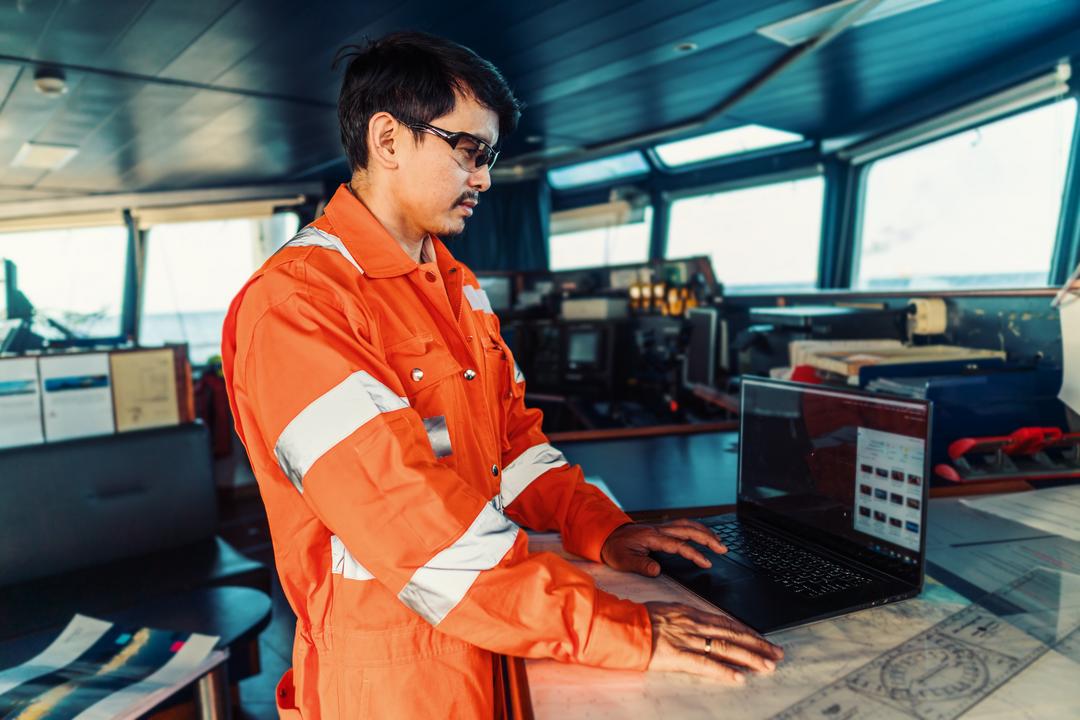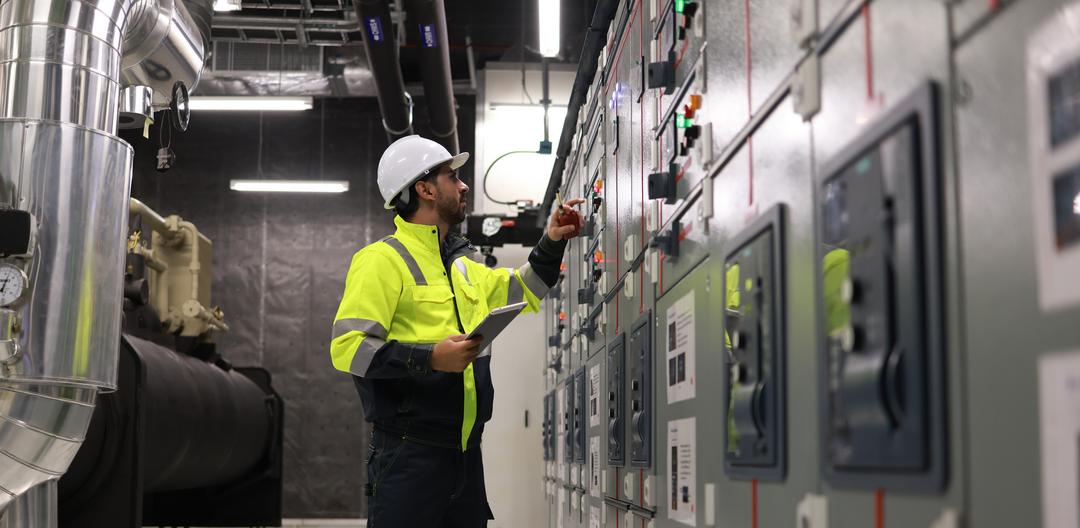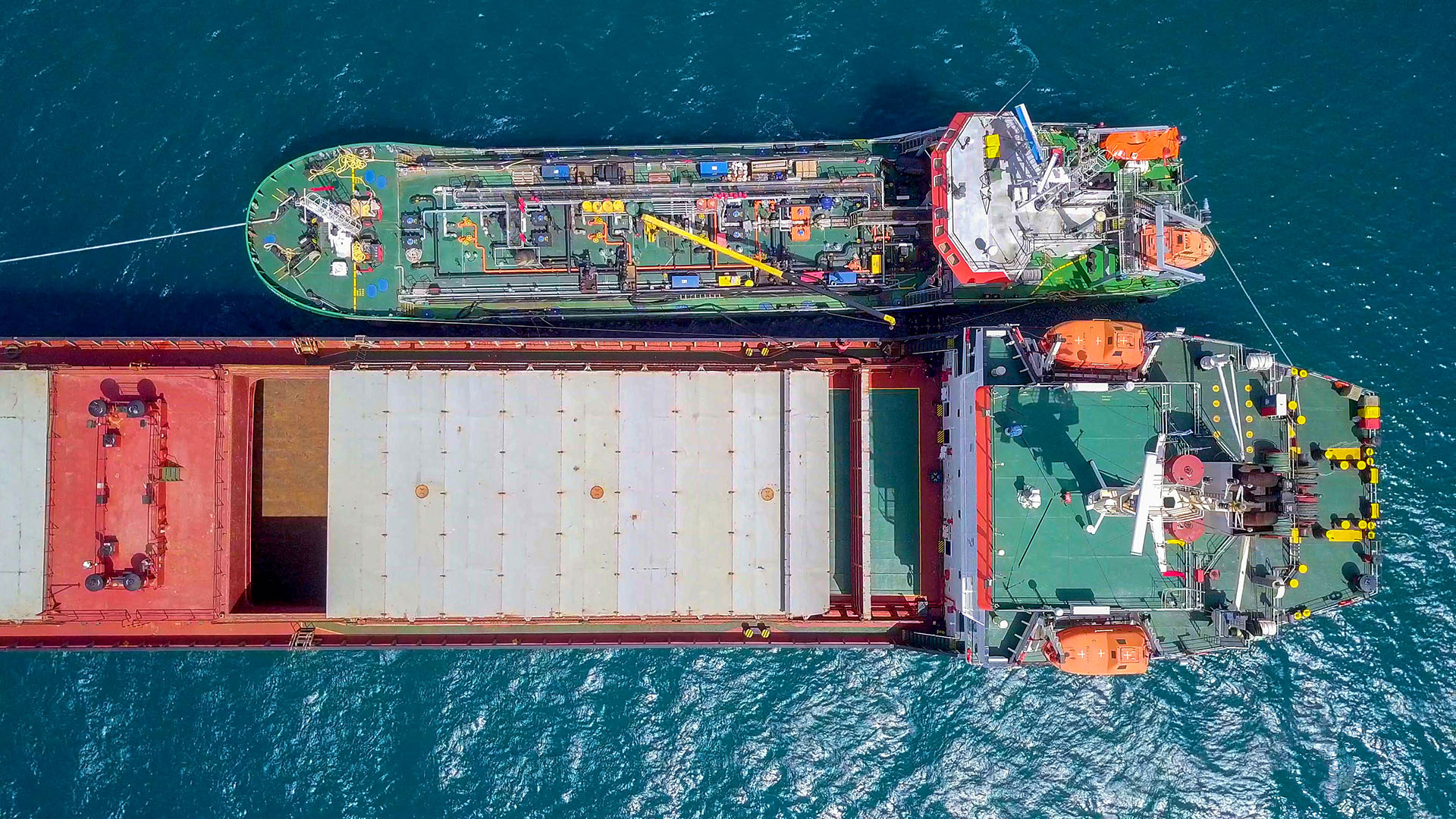MEPC stands for ‘Marine Environment Protection Committee,’ and it addresses the environmental issues within the remit of the IMO (International Maritime Organization).
The MEPC covers a wide range of topics, from ship-source pollution to ballast water management and recycling aboard ships.
However, of particular interest to owners and charterers is the MEPC’s role in reducing greenhouse gas emissions (GHG) from the maritime industry. This was highlighted during the 80th session of the MEPC, which set a series of targets for maritime GHG reduction.
What are the emissions targets from MEPC 80?
Following extensive discussions and negotiations between the member states that make up the committee, MEPC 80 delivered the following targets for the shipping sector to reduce GHG emissions:
- By 2030: Reduce GHG emissions by 20% – 30% (compared to 2008 levels)
- By 2030: 5% – 10% of energy used by international shipping to come from zero or near-zero GHG emissions technologies
- By 2040: Reduce GHG emissions by 70% – 80% (compared to 2008 levels)
- ‘Close to’ 2050: Reach net-zero GHG emissions
On the surface, these targets represent a significant step forward for the maritime sector in its goal to reduce GHG emissions. However, the challenge is that these targets fall short of what’s required to align with the IPCC’s (Intergovernmental Panel on Climate Change) targets to keep global warming under 1.5°C, based on the Paris Agreement from COP21. These stricter targets call for a 37% reduction by 2030 and a 96% reduction by 2040.
This disparity suggests that the MEPC 80 goals may evolve over time to become more ambitious, especially if the climate crisis intensifies. This situation presents both an opportunity and a challenge for shipowners, charterers, and the broader sector. The opportunity lies in addressing maritime GHG emissions now, before even stricter targets are imposed. The challenge will be in meeting these targets, even those currently set by MEPC 80.
Will the maritime sector hit its emissions targets?
Like many other industries, the shipping sector faces a significant challenge in reducing GHG emissions to the necessary levels to prevent catastrophic global warming. And, similar to other sectors, there is no single solution for reducing carbon emissions.
While the potential of zero-carbon marine biofuels and zero-carbon ships is often highlighted, these are not quick fixes. Green fuels are still in their early stages, the infrastructure is not yet fully developed, and retrofitting a vessel to use these fuels can be costly. Moreover, designing and building a new vessel type, especially a zero-emissions ship, takes many years.
Zero-carbon fuels and vessels will eventually play a crucial role in reducing shipping emissions, but they alone won't suffice, particularly in the short term. So what’s the answer?
As the UCL UMAS (University Maritime Advisory Service) points out in its MEPC 80 analysis, “Meeting the 2030 target will require either a maximization of efficiency options or a combination of significant efficiency improvements and the use of alternatives to fossil fuels.”
Therefore, one of the most pressing goals for shipowners and operators is to improve vessel efficiency. In modern shipping, the need to enhance operational efficiency has never been greater, both from a commercial perspective (as fuel becomes more expensive) and from an environmental standpoint. Achieving even 3% – 5% efficiency gains is a top priority and will position owners and operators favorably for the inevitably stricter emissions targets.
How can ships reduce their GHG emissions now?
Meeting the 2030 targets will require a mix of efficiency savings and alternative fuels. However, alternative fuels are not a cheap option, especially since MEPC 80 has mandated that their carbon impact must now be assessed on a ‘well-to-wake’ basis. For example, ‘green’ ammonia or hydrogen is significantly more expensive than their fossil-fuel-derived counterparts.
At the same time, owners can’t immediately start refitting their entire fleets with energy-saving devices or engines capable of handling zero-carbon fuels. Consequently, efficiency savings must be the starting point for many shipowners when it comes to reducing their carbon emissions.
Improving efficiency is no longer just a ‘nice to have’—it is a necessity. All shipowners (together with operators) need to begin understanding how they can make their vessels more efficient to reduce fuel consumption and cut carbon emissions.
The good news is that there are several immediate steps that can be taken to deliver fuel efficiency savings. However, these savings are only achievable if the industry adopts a forward-looking approach to all aspects of shipping.
For instance, a good starting point for reducing fuel consumption is to choose more efficient routes, slower sailing speeds, and optimized arrival times. This can only be accomplished through a combination of technology (high-frequency sensors and advanced vessel simulations) and dynamic charter party agreements that provide greater flexibility around vessel speeds and arrival times.
Similarly, data is essential so that owners can track the performance of their entire fleet to see how efficient it is, especially against external benchmarks like the IMO’s CII (Carbon Intensity Indicator) grading.
By implementing the necessary technology and systems now to measure vessel performance and reduce fuel consumption, owners and operators will be better positioned to track fuel savings and emissions reductions as energy-saving devices and zero-carbon fuels become more prevalent.
Danelec is one of the few companies in the market that already offers all these solutions. With Danelec Voyage Insights, operators can create fuel-efficient voyage plans using real-time weather data and vessel performance data. Our Voyage Insights allows owners to monitor the performance of their entire fleet, ensuring it is on track to meet emissions goals. Additionally, our Green Charter suite of products utilizes virtual simulations of vessels (‘Digital Twins’) to create dynamic charter party clauses focused on collaboration and emissions reductions, rather than the traditional adversarial charter party relationship.
What’s next for reducing GHG in shipping?
Owners and operators have long recognized the need to reduce GHG emissions from their vessels. However, the targets set by MEPC 80 have made emission reductions a more immediate priority.
The key to addressing GHG emissions for owners and operators is to focus on what can be changed now. Zero-carbon vessels and fuels are still a long way off, and energy-saving devices take time to implement. However, there are immediate efficiency savings that can be realized.
Ultimately, efficiency savings are within reach for every owner and operator. But they need to start thinking about improving efficiency and tracking vessel performance now, or they will face an uphill battle when they are forced to do so in the future.




